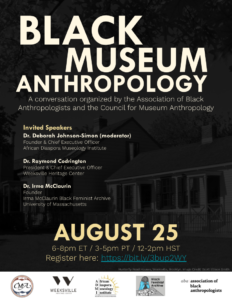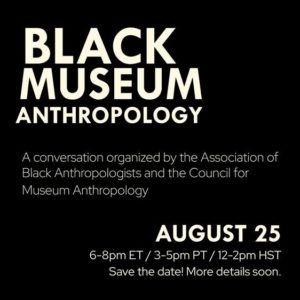Dear CMA colleagues and friends,
We are thrilled to share with you that the Council for Museum Anthropology will launch the annual Ivan Karp Workshops in Museum Anthropology, thanks to a generous tribute gift by CMA member, former CMA Board member, and former AAA Executive Board member Dr. Corinne A. Kratz.
The Ivan Karp Workshops will focus on changing themes and issues relating to research, practice, and methods in museum anthropology; particular aspects of and current questions and issues related to museum and heritage work; and the theories, histories, and systems of thought that shape and illuminate museum anthropology and public scholarship generally. This very generous gift provides practical training for museum practice, methods, and mentoring.
The first workshop will occur during the 2022 AAA’s Annual Meeting on Wednesday, November 9 in Seattle, WA. Created in partnership with the Wing Luke Museum, the inaugural workshop will explore their highly-lauded community-based exhibition model and the ways in which they support their communities. Limited to 16 participants, details regarding registration will be forthcoming.
Please join us in celebrating this tremendous opportunity!
Council for Museum Anthropology Board


